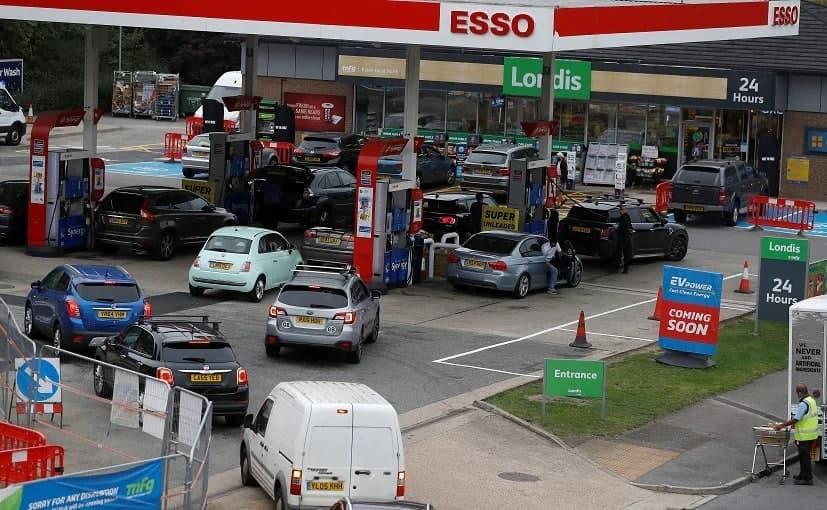LONDON, Oct 2 (AFP) - The British army will begin delivering petrol to fuel stations on Monday (Oct 4) to help alleviate the ongoing crisis after fears over tanker driver shortages led to panic buying, the government said on Friday.
"Almost 200 military tanker personnel, 100 of which are drivers, will be deployed from Monday to provide temporary support as part of the government's wider action to further relieve pressure on petrol stations and address the shortage of HGV drivers," the government said in a news release.
Motorists queued at fuel pumps across Britain at the beginning of the week, draining tanks and fraying tempers.
The government says a lack of tanker drivers to deliver fuel and unprecedented demand is behind the crisis.
Demand for fuel has stabilised throughout the week and stations are gradually stocking up again, but some parts of the country still face severe shortages.
"Thanks to the immense efforts of industry over the past week, we are seeing continued signs that the situation at the pumps is slowly improving," said business minister Kwasi Kwarteng.
"It's important to stress there is no national shortage of fuel in the UK, and people should continue to buy fuel as normal. The sooner we return to our normal buying habits, the sooner we can return to normal," he added.
The military drivers were put on standby at the beginning of the week, and have since received specialised training.
The government has already made a U-turn on tighter post-Brexit immigration policy, offering short-term visa waivers to foreign truckers to help plug the shortfall.
Fuel operators, including Shell, BP and Esso, said there was "plenty of fuel at UK refineries" and expected demand to return to normal soon.
But following a week of queues, drivers in many parts of the country are still unable to get fuel, stoking concern about the effects on the wider economy.
Critics blame government inaction on tackling shortages of lorry drivers after Britain's departure from the European Union in January and the pandemic, which saw many foreign truckers leave the country.
As well as fuel deliveries, the shortage has led to empty supermarket shelves and raised fears about deliveries of food and toys for Christmas.


